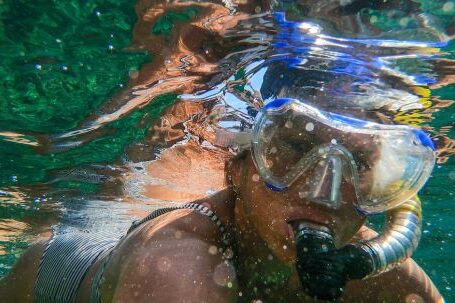Marine life research is crucial for understanding and conserving our oceans and the diverse species that inhabit them. While scientists play a vital role in this endeavor, they often face limitations in terms of resources and manpower. This is where citizen science projects come into play, offering opportunities for individuals to actively contribute to marine research. By participating in these projects, you can make a meaningful impact and help protect our oceans.
Why Citizen Science Matters
Citizen science projects harness the power of everyday people to collect valuable data and contribute to scientific research. These projects enable researchers to gather large amounts of data from various locations, which would otherwise be impossible for them to collect on their own. By involving citizens, scientists can cover a larger geographic area and obtain more comprehensive information about marine ecosystems.
Benefits of Getting Involved
Participating in citizen science projects not only allows you to contribute to marine life research but also provides several benefits for you personally. Firstly, it offers a unique opportunity to learn about marine ecosystems and gain a deeper understanding of the importance of conservation. It also allows you to connect with like-minded individuals who share a passion for marine life and environmental protection. Additionally, engaging in citizen science projects can be a fulfilling and rewarding experience, as you directly contribute to scientific knowledge and conservation efforts.
How to Get Involved
There are numerous ways to get involved in citizen science projects focused on marine life research. Here are a few popular options:
1. Reef Monitoring: Many organizations offer programs where volunteers can help monitor the health of coral reefs. By conducting surveys and collecting data on coral bleaching, biodiversity, and reef fish populations, you can contribute to ongoing research and conservation efforts.
2. Marine Mammal Surveys: Participating in marine mammal surveys allows you to contribute to the study of whales, dolphins, and other marine mammals. You can join expeditions to observe and record data on their behaviors, population sizes, and migration patterns.
3. Sea Turtle Nest Monitoring: Sea turtles face numerous threats, and monitoring their nesting sites is crucial for their conservation. By assisting in monitoring programs, you can help track nesting activity, protect nests, and contribute to the understanding of sea turtle populations.
4. Beach Cleanups: While not specifically focused on research, beach cleanups play a vital role in marine conservation. By removing litter and debris from beaches, you help prevent pollution and protect marine life from the harmful effects of plastic and other waste.
5. Oceanographic Data Collection: Some citizen science projects involve collecting data on water quality, temperatures, and other oceanographic parameters. By contributing data, you assist in building a better understanding of ocean dynamics and their impact on marine ecosystems.
Conclusion: Making a Difference
Engaging in citizen science projects focused on marine life research allows you to actively contribute to the conservation of our oceans. By participating in these initiatives, you become an important part of the scientific community, helping to fill gaps in research and protect marine ecosystems. So, if you have a love for the ocean and a desire to make a difference, consider getting involved in citizen science projects and be part of the solution to safeguard our precious marine life.





